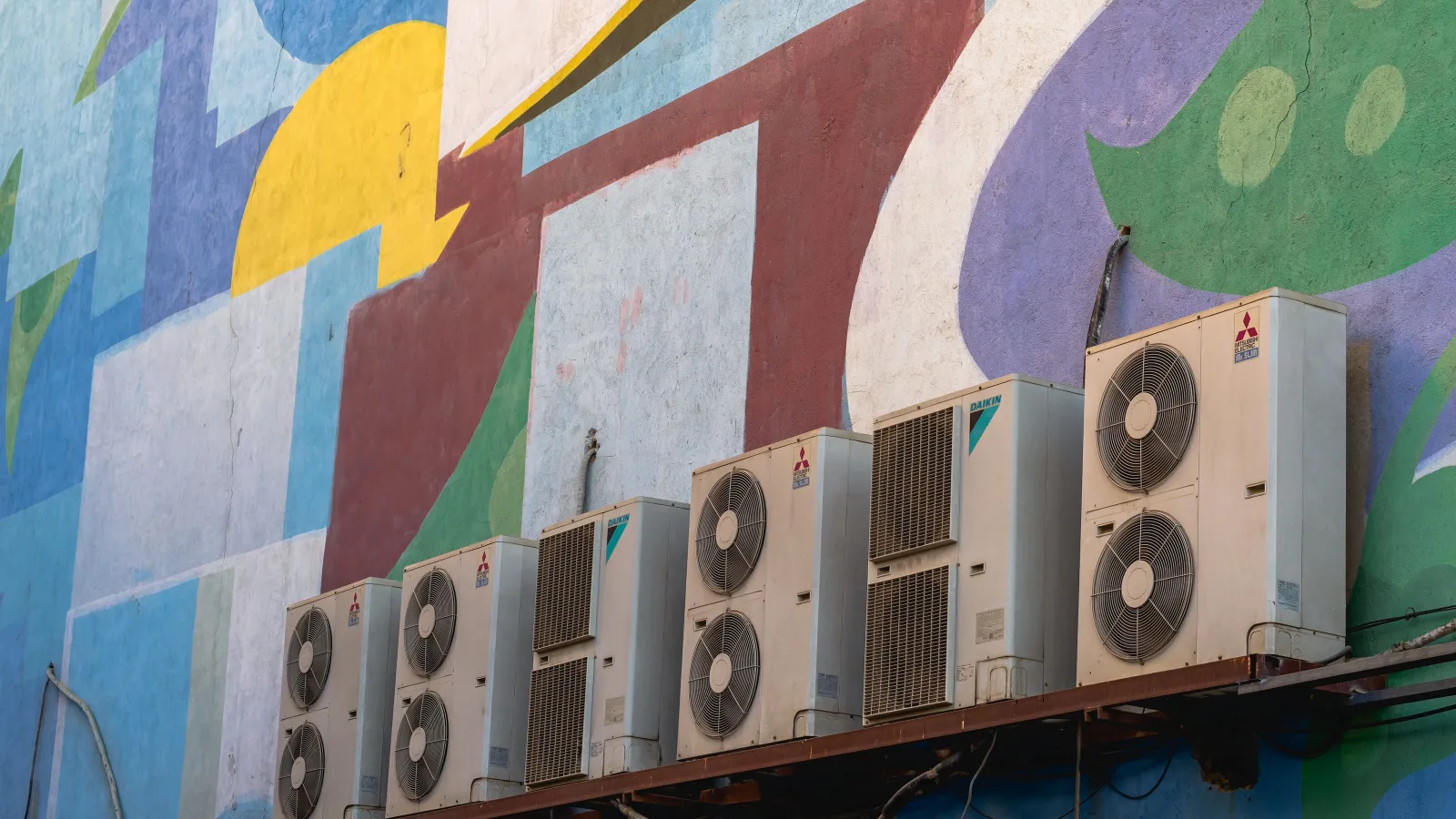AC Not Working? 7 Simple DIY Checks!

Is your
AC not working? Are you curious about DIY air conditioner repair? Residents in Snappy's service area and
many other locations across the country rely on a properly functioning air conditioning system to get
through hot and humid months. If your AC is not working on those incredibly
balmy days or during extended heat waves, then your home may become almost
unbearable. Fortunately, routinely checking your air conditioner unit helps
ensure that it is working to its full potential and running at peak efficiency.
If your AC is not working or you are otherwise wondering what to check to
monitor its operation, learn about 7 DIY AC checks below!
How to Check Your Air Conditioner
Before
beginning any home improvement or maintenance project, it's important for
homeowners to consider their readiness for these tasks. As per Realtor.com, money
is not the only cost of these efforts. From the financial consequences of a job
done wrong to the emotional stress that projects can generally cause in the
household, these efforts take time to complete, not to mention skill and
specialized tools (in some cases). Fortunately, the majority of the DIY AC
checkpoints on the following list are observational, but you can turn to your local AC
maintenance specialist for help if needed!
1. Look at the Thermostat
If the AC is not working,
then check the thermostat batteries, as they may be running low. Often, a
battery symbol or light on your thermostat indicates when the batteries need to
be changed. Additionally, thermostat setting issues also impact AC operation,
so make sure that they are set appropriately. As a first step in DIY AC
maintenance, checking the thermostat may save you both hassle and headache.
In
general, regularly checking your thermostat or employing a programmable
thermostat, like a smart thermostat, offers numerous benefits, according to the
U.S. Department of Energy. In
addition to supporting energy efficiency and reducing utility bills, limiting
the use of air conditioners helps reduce the strain of continuous use on this
system's components.
2. Listen to the AC
To monitor your HVAC
system throughout the year or your individual AC units, your senses come in
handy. A well-maintained and properly functioning air conditioning system is
meant to run quietly and efficiently. Consequently, changes from usual system
sounds often indicate that your AC is not working. Often, noisy AC units point
to issues with the compressor motor or condenser fan, which can compromise the
system's efficiency. If your AC is making a ruckus especially during initial
start-up or more subtle sound changes are accompanied by other system issues,
contact an AC repair
expert to diagnose and fix the problem.
3. Check the Temperature
For older homes and AC
systems, the external temperature can make a difference. On those
unbearably hot days, the temperature outside could be too intense for older
systems to function at maximum efficiency and may result in a system failure.
Whether your AC is not working well or at all, it may be time for an HVAC repair or replacement. After
a reputable HVAC company, such as Snappy Services, assesses your system and
shares its current value relative to the necessary repair costs, consider the
50% rule as you anticipate potential next steps. In short, if the cost to
repair your HVAC system is LESS than half of its value and its previous
maintenance and repair costs have been relatively low, a repair may be a less
expensive yet effective option in comparison to a complete replacement.
4. Assess the Outdoor Unit
The outside portion of
your air conditioner or condenser unit is responsible for releasing heat from
your inside air to the air outside. If the condenser is compromised, the heat
that is removed from your home will have nowhere to go. Since the unit is outside
and exposed to the elements, it's especially important for homeowners to stay
vigilant about its care. To maintain
this component of your HVAC system, be sure to check the fan
and the area around the unit.
During seasonal yard work
or the occasional "spot check," clear weeds, accumulated leaves, or
any other debris from around these components. Also, give some attention to the
fan because you should be able to see and hear it running. If this sound is
absent or unusual, then this finding may point to why your AC is not working as
it should be. Scheduling regular professional HVAC maintenance in
addition to your own DIY AC upkeep helps ensure effective and efficient system
operations.
5. Examine the Drain Line for Water
Water
leaks anywhere in the home are cause for concern. Similarly, any water surrounding the indoor AC unit is a clear sign that the AC is not working
properly. Typically, this scenario indicates that the drain line is likely
plugged. However, there are other reasons for water around the drain line, so
it is best to have a professional expert inspect the air conditioner system to
diagnose and resolve the issue.
6. Replace the AC Air Filter
As with the outdoor unit
of your HVAC system, your AC air filter may be similarly out of sight and thus
out of mind. Although it is located in your home's interior system components,
this filter also becomes dirty and clogged over time. Dirty air filters can
allow airborne contaminants to circulate through your home as they build up on
the filter and are pulled into the system, reducing overall air quality.
Plus, clogged filters force your AC to work overtime, leading to potential
system damage and reduced cooling efficiency. When your system struggles to
pull in clean air, it essentially "chokes," preventing proper
airflow. This not only causes performance issues but also accelerates wear and
tear, leading to premature part failure. Regular filter replacements keep your
air clean and your AC running smoothly!
Therefore, simple
maintenance is one of the single most important things you can do to keep your
equipment running properly and efficiently. Changing the filter is a quick DIY
air conditioner repair, which allows the system and your household to breathe easier.
If you aren't comfortable performing this task, be sure to talk to a quality
HVAC specialist about including filter replacement as
part of your scheduled maintenance.
7. Inspect the Circuit Breaker
Whether caused by an AC
unit or any other appliance, an overworked appliance can trip the
circuit breaker. Sometimes, this tripped circuit
breaker may simply require a reset. However, if it happens more than once, then
you may have a bigger problem. At Snappy Services, our team includes both HVAC
specialists and electrical
experts, so we'll be able to help you resolve issues quickly and
effectively!
Whether
you execute one or more of these simple DIY AC checks, your efforts help keep
your home cool and your system operating as it should. If you've completed the
checklist and your AC still is not working, contact the professionals at Snappy
Services for assistance. In addition to identifying and solving any AC repair
or maintenance needs, Snappy also conducts home
energy checkups to help homeowners identify other
ways to reduce energy use and save money on energy bills! Contact our team with
any questions about our HVAC, plumbing or electrical services or request an appointment if your
AC is not working!

